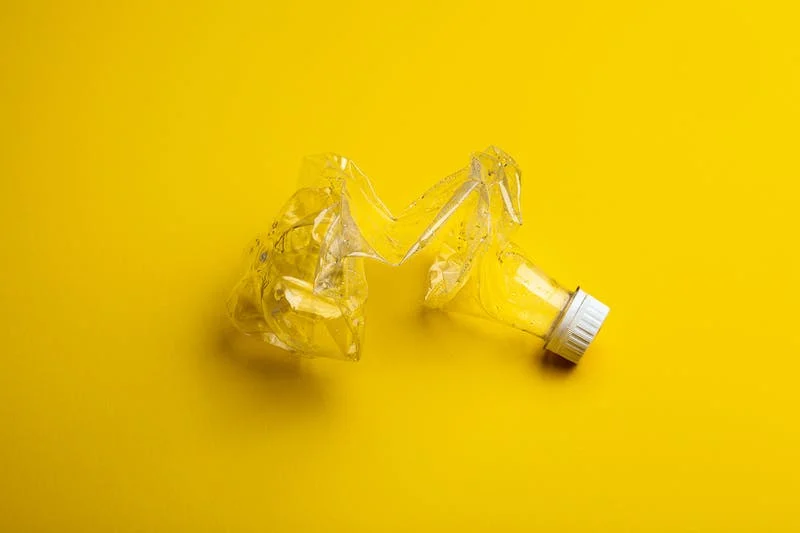Links you click on in this post may earn us a small commission at no cost to you. Thank you for your support.
In today’s world, where environmental concerns are taking center stage, learning how to recycle more and waste less has become a crucial life skill. Recycling isn’t just about sorting your trash; it’s a way to reduce your carbon footprint, conserve resources, and make a positive impact on the planet. In this article, we’ll explore some easy and practical ways how to recycle more in your daily routine and waste less overall. Future generations will thank you.

Understanding the Basics of Recycling
I think it’s really important to start at the absolute core basics. Recycling is the process of converting used materials into new products, reducing the need to extract raw resources from the Earth. This practice helps conserve energy, reduce greenhouse gas emissions, and divert waste from landfills. The key is to identify items that can be recycled, such as paper, glass, plastic, and metals, and separate them from your regular trash. Like I mentioned, this varies from jurisdiction to justistiction. As an example, in Portland we have a very specific guidelines as to what can and cannot be recycled. It is easy to get from the city so that you know exactly how to do it. If you are confused about any particular item, you can reach out to your local Recology center and ask them directly.

Setting Up an Efficient Recycling System
Start by designating separate bins for different types of recyclables. Place them in convenient locations around your home to make recycling easy to do without thinking. And again – familiarize yourself with your local recycling guidelines to ensure you’re sorting items correctly. Remember, proper sorting prevents contamination and ensures your efforts aren’t in vain. Do you want to have the greatest impact that you can for the least amount of effort. As with anything that we talk about on this blog you have to remove the barriers to make it easier to do naturally.

Reducing Single-Use Plastics
Single-use plastics are a major contributor to environmental pollution. Invest in reusable alternatives like water bottles, shopping bags, and coffee cups. By doing so, you’ll significantly reduce the amount of plastic waste that ends up in landfills and oceans. The earth only has so much space for things to go. You can also messaged favorite companies and encourage them to do things more sustainably by reducing single use plastics for their products. One of the easiest ways that I reduced my own usage of single use plastic is by buying a reusable water bottle to carry around when I leave the house

Composting: Nature’s Recycling
Food waste can be recycled too, through composting. Composting not only reduces landfill waste but also creates nutrient-rich soil that can be used in gardening. Start a compost bin in your backyard or look for community composting programs in your area. Honestly, this is one of my favorite ways of recycling. I save a lot of money each year by composting as much as I can. It helps my urban homestead grow food for me to eat

Donate or Sell Unwanted Items
Before tossing items in the trash, consider whether someone else might find value in them. Clothes, electronics, and furniture can often be donated or sold online. This practice not only reduces waste but also supports a culture of reuse. You can use websites like Facebook Marketplace or OfferUp. Honestly, I have actually made quite a bit of money by selling items I no longer need. As the saying goes one man’s trash is another man’s treasure. Why not make some money while also doing good for the planet?

Embracing Upcycling
Upcycling involves transforming old or discarded items into something new and useful. Get creative by repurposing old furniture, turning glass jars into stylish containers, or making art from discarded materials. Upcycling adds a unique touch to your living space while promoting sustainability. It’s also a great way to be creative. You don’t have to be amazing at drawing… maybe you’re really good at crafting and repurposing items?
Educating Yourself and Others

Learning about recycling is an ongoing process. Stay informed about new recycling techniques, technologies, and local initiatives. Share your knowledge with friends and family to inspire them to join the recycling movement too.

Mindful Shopping
One effective way to waste less is by being mindful of your purchases. Opt for products with minimal packaging or those made from recycled materials. By supporting eco-friendly products, you encourage businesses to adopt sustainable practices. I am as guilty as the rest of society by leaning in to instant gratification purchases off Amazon. I think that’s why I am so mindful about the way that I get rid of trash now. There is a balance.

Reducing Energy Consumption
Recycling isn’t just about materials; it’s about conserving energy too. When you recycle paper, for instance, you save trees and the energy required to produce new paper. By using energy-efficient appliances and making simple lifestyle changes, like turning off lights when not needed, you contribute to waste reduction indirectly. How do you save money! Cha-ching it’s a win-win.

Celebrating Small Wins
Every effort counts. Whether it’s remembering to bring your reusable bags to the grocery store or diligently separating your recyclables, celebrate your achievements in the journey toward waste reduction. Small steps can lead to significant positive changes for the environment.

Final Thoughts about How to Recycle More
Learning how to recycle more and waste less isn’t just a trend – it’s a responsible way of living that benefits both you and the planet. By understanding the basics of recycling, setting up efficient systems, reducing single-use plastics, and making informed choices, you can make a tangible difference. Embrace the power of recycling, and let’s pave the way for a greener, more sustainable future.

